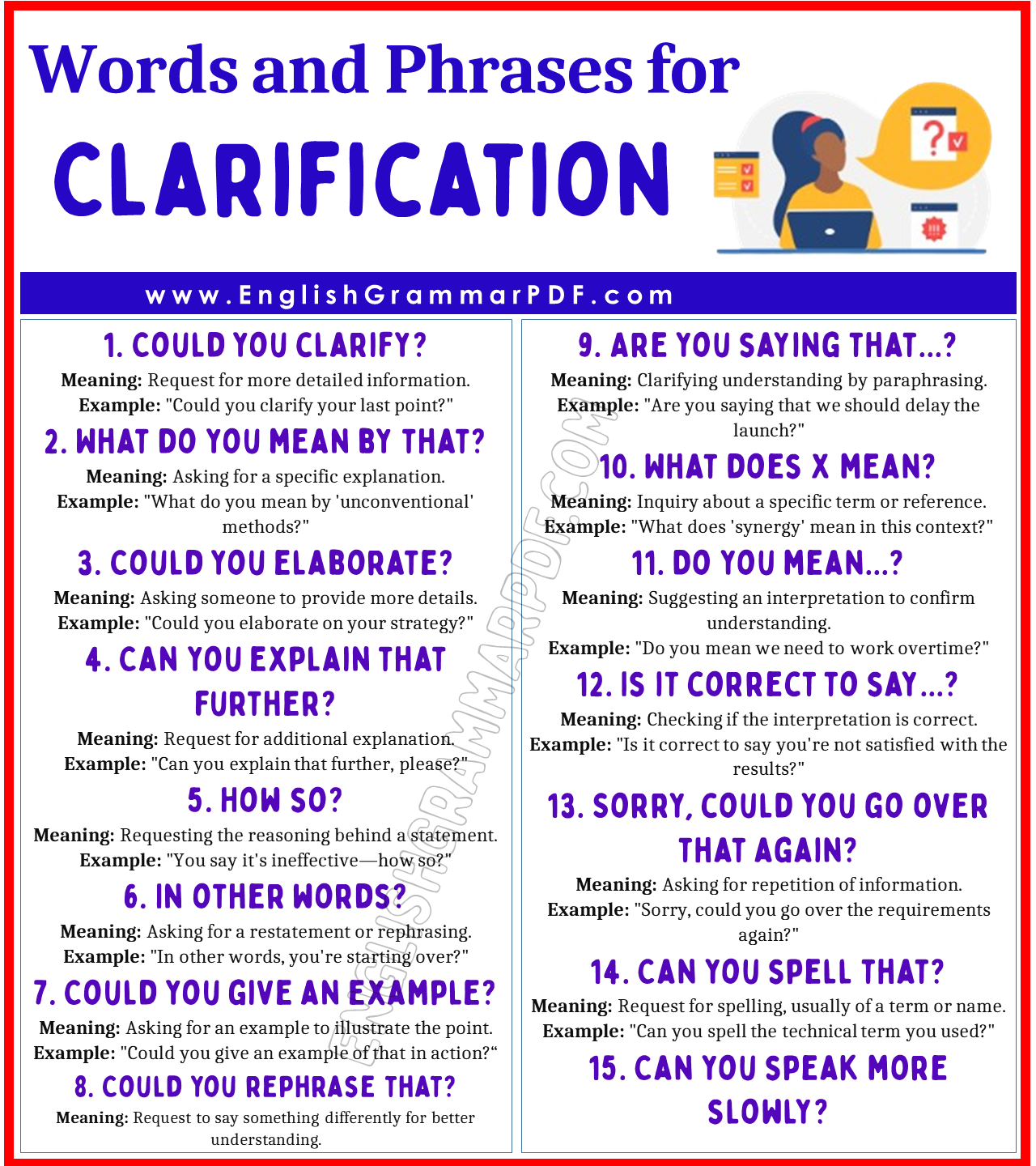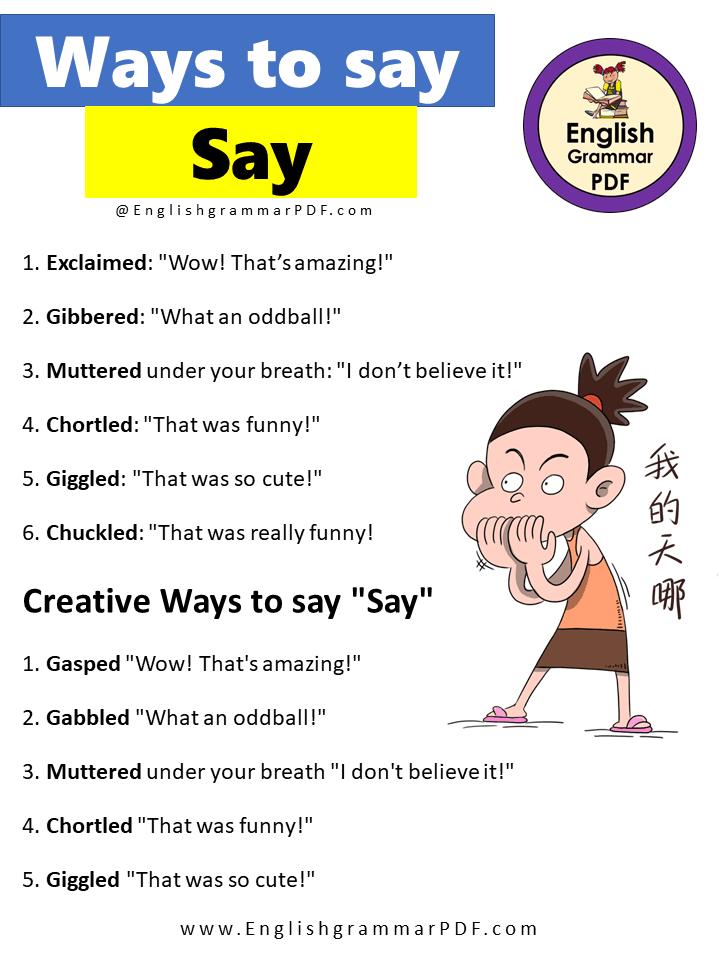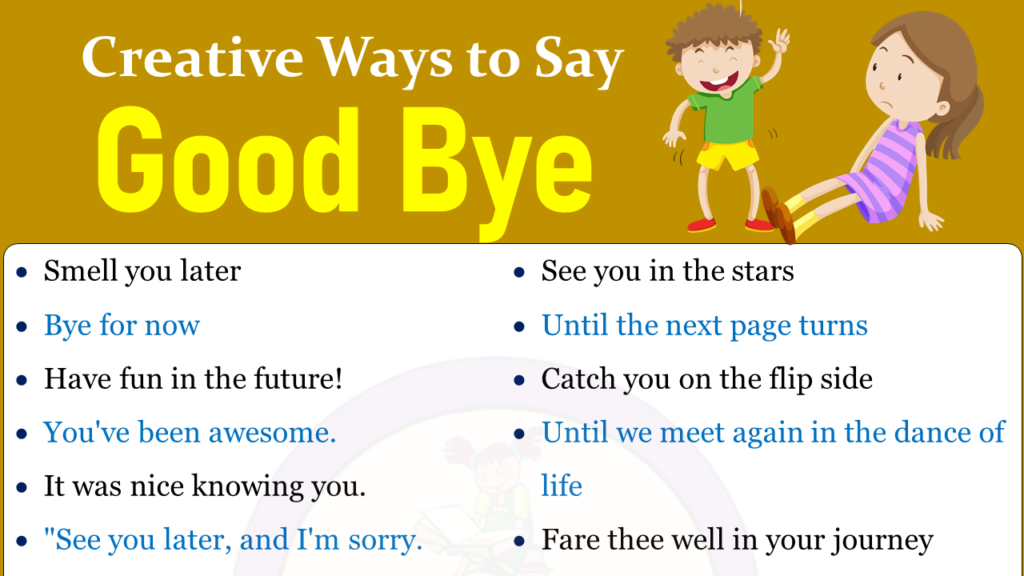Effective communication often requires clarification, ensuring that all parties understand each other perfectly. Whether in professional settings, academic discussions, or everyday conversations, the ability to clarify thoughts and questions is essential. This blog post introduces 20 useful words and phrases that can help you ask for clarification or make your own statements clearer, making your interactions more productive and misunderstanding-free.
Words and Phrases to Use for Clarification
1. Could you clarify?
Meaning: Request for more detailed information.
Example: “Could you clarify your last point?”
2. What do you mean by that?
Meaning: Asking for a specific explanation.
Example: “What do you mean by ‘unconventional’ methods?”
3. Could you elaborate?
Meaning: Asking someone to provide more details.
Example: “Could you elaborate on your strategy?”
4. Can you explain that further?
Meaning: Request for additional explanation.
Example: “Can you explain that further, please?”
5. How so?
Meaning: Requesting the reasoning behind a statement.
Example: “You say it’s ineffective—how so?”
6. In other words?
Meaning: Asking for a restatement or rephrasing.
Example: “In other words, you’re starting over?”
7. Could you give an example?
Meaning: Asking for an example to illustrate the point.
Example: “Could you give an example of that in action?”
8. Could you rephrase that?
Meaning: Request to say something differently for better understanding.
Example: “Could you rephrase that for clarity?”
9. Are you saying that…?
Meaning: Clarifying understanding by paraphrasing.
Example: “Are you saying that we should delay the launch?”
10. What does X mean?
Meaning: Inquiry about a specific term or reference.
Example: “What does ‘synergy’ mean in this context?”
11. Do you mean…?
Meaning: Suggesting an interpretation to confirm understanding.
Example: “Do you mean we need to work overtime?”
12. Is it correct to say…?
Meaning: Checking if the interpretation is correct.
Example: “Is it correct to say you’re not satisfied with the results?”
13. Sorry, could you go over that again?
Meaning: Asking for repetition of information.
Example: “Sorry, could you go over the requirements again?”
14. Can you spell that?
Meaning: Request for spelling, usually of a term or name.
Example: “Can you spell the technical term you used?”
15. Can you speak more slowly?
Meaning: Request to slow down the speaking pace for better understanding.
Example: “Can you speak more slowly, please?”
16. What are you referring to?
Meaning: Asking for specification of the subject.
Example: “What are you referring to when you mention ‘adjustments’?”
17. Just to clarify…
Meaning: Preface to a statement that aims to clear up previous ambiguity.
Example: “Just to clarify, the meeting is next Wednesday, not Thursday.”
18. Let me see if I got this right…
Meaning: Checking one’s own understanding before proceeding.
Example: “Let me see if I got this right, you need the report by tomorrow?”
19. To put it another way…
Meaning: Introducing a rephrasing for clarity.
Example: “To put it another way, we are reducing the budget.”
20. If I understand you correctly…
Meaning: Verifying if one’s understanding is correct.
Example: “If I understand you correctly, you’re opting for an early release.”



